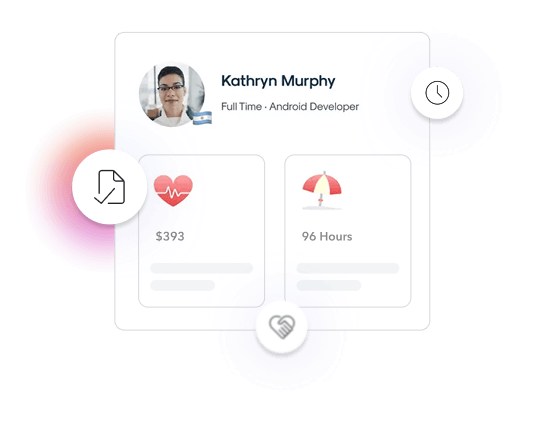Hire anyone, anywhere – easily and compliantly
Contractor Management
Pay your contractors wherever they are, seamlessly.
Agent of Record
Hire, pay, and manage contractors internationally, in compliance with local laws.
Employer of Record
Hire, pay, and manage global employees without setting up local legal entities.
In good company
We work with businesses and marketplaces of every size, including many you might recognize.
The simple way to manage a global workforce
In one platform, you can easily control every stage of your workforce management, including global employment, payroll, benefits, contractors, and more.

Onboarding without obstacles
Onboard your contractors and employees worldwide, seamlessly and in compliance with local laws:
- Calculate and analyze the cost to hire anyone, anywhere
- Create and send localized contracts in minutes
- Quickly collect all the necessary employment documentation
- Get expert support for issuing and managing work devices
Flexible ways to pay
Pay your employees and contractors in 70 currencies, through a wide range of payment methods:
- Invoice payments
- Credit card
- Direct bank transfer
- Wire Transfer
- ACH Transfer
Plus, you can manage bulk payments, invoicing, deductions, pay slips and more — all at the touch of a button.


Employment made easy
Whenever you hire contractors or employees, all over the world, we’ll help you offer the best benefit packages, handle timesheets and expense management, and more – all in one platform for the complete employment lifecycle.
Keeping you compliant
With legal and compliance expertise in 160+ countries, we can help you stay on top of changing employment laws, mitigate risks, and ensure you’re complying with local regulations, everywhere you hire.

We can help you build your dream global team

Talent discovery
Helping you find the perfect candidate across the globe.
Background checks
Ensuring trust, compliance, and the right fit.
Coworking spaces
Helping you provide your team with workspace and conference rooms.
Visas and work permits
Making sure the people you hire have the legal right to stay and work.
Equipment for new hires
Setting up everyone you hire for success from day one.
Global Hiring Toolkit
From local salary benchmarks to employment costs, learn all you need to know about hiring, paying, and managing an international team.
Global hiring guides
Explore and benchmark salaries
Employee cost calculator
Hire, onboard, pay, and manage your remote team with Payoneer
160+
Countries
covered
100%
Transparency in
fee structure
70
Currencies
for payroll
24×5
Dedicated
support
Skuad Pte Limited (a Payoneer group company) and its affiliates & subsidiaries shall provide EoR, AoR, and contractor management services.












